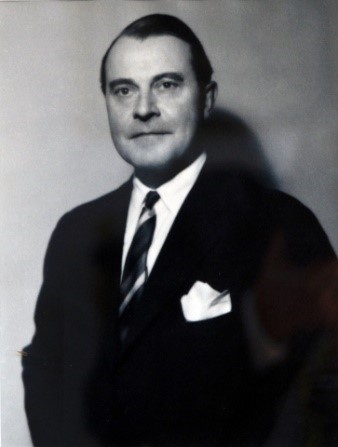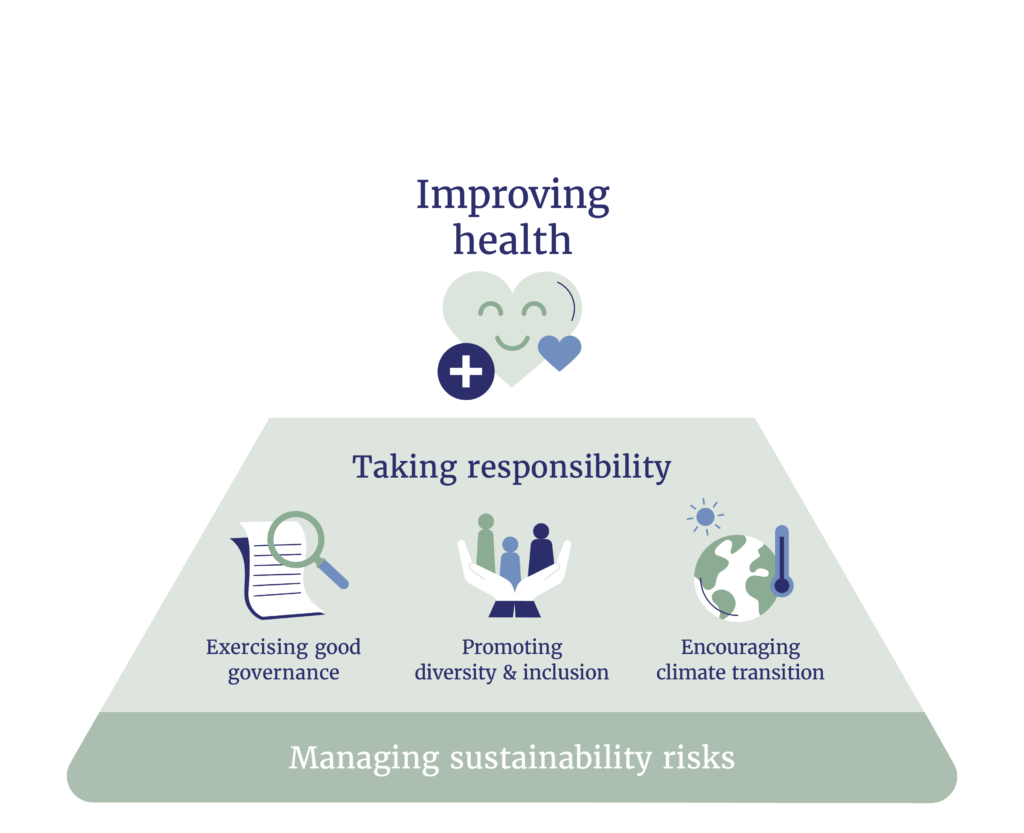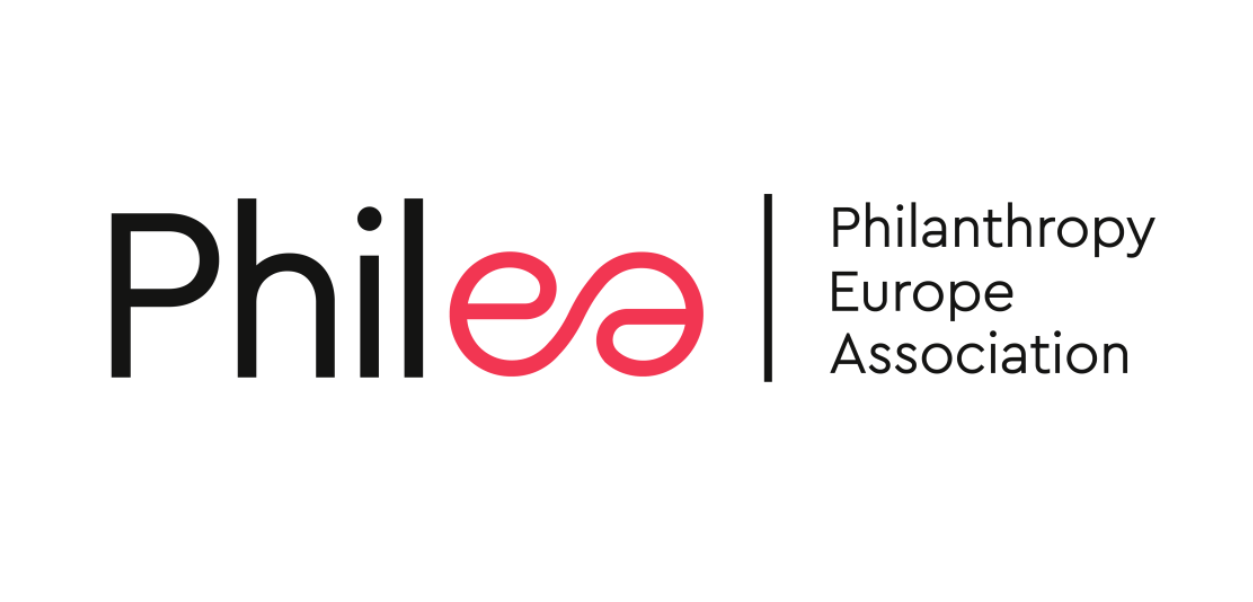How we work
As one of Denmark’s largest enterprise foundations, as an engaged owner of LEO Pharma and with substantial philanthropic activities and significant financial investments, the LEO Foundation plays an active role in society.
Thus, we have an important obligation and responsibility to operate transparently and with integrity in all of our actions.
We fully support and comply with all the recommendations of the Danish Committee on Foundation Governance.
Besides this we follow a number of policies regarding conflict of interests, taxation, code of conduct, etc.
An enterprise foundation with a clear charter

The LEO Foundation is a Danish enterprise foundation with corporate interests. The Foundation operates independently of any other interests than those described in the Foundation’s charter.
The charter is in essence the will of the Foundation’s founder, Knud Abildgaard, who until his death in 1986, was the owner of LEO Pharma.
The charter sets the overall purpose and objective of the Foundation and defines how it should be governed.
In accordance with the charter, the Foundation’s primary purpose and objective is to ensure the continuance of LEO Pharma.
The charter defines the Foundation’s philanthropic field as support to research within medicine, chemistry and pharmacy.
Governance recommendations
The Foundation is governed by the Danish Foundation Act, and the Danish Business Authority therefore supervises the Foundation.
In accordance with Danish law, the Committee on Good Foundation Governance has prepared a set of recommendations on foundation governance, which the foundations with corporate interests must address and explain if they do not comply with the recommendations (the “comply or explain” principle).
The LEO Foundation fully supports and complies with all the recommendations.
LEO Foundation Code of Conduct
In the LEO Foundation we expect our employees and partners to operate with high ethical standards and always ensure compliance with applicable laws and regulations.
With the LEO Foundation Code of Conduct, we have defined 10 guiding principles for ethical behavior. It is built on our values of integrity, dedication and ambition and reflects our commitment to create sustainable value for people and society and to always do business in a responsible way.
Conflict of Interest Policy
The LEO Foundation aims to ensure that rules and principles of eligibility are adhered to.
These principles describe the policy for legal capacity and conflict of interests in connection with handling applications and granted projects in the Foundation.
Diversity, equity and inclusion
At the LEO Foundation, diversity of talent, equitable practices, and an inclusive culture are key contributors to a motivating and engaged culture providing the basis for achieving our ambitions. We take an active approach to promoting diversity, equity, and inclusion principles and practices across our work – as an employer, company owner, investor, and philanthropist.
Anchored in our values of integrity, dedication, and ambition, and complementing our Code of Conduct, our Diversity, Equity and Inclusion (DEI) Policy outlines the principles of working with DEI in the LEO Foundation.
The policy is addressed to employees of the LEO Foundation and LEO Holding as well as our board members, external committee members, business partners, and personnel funded by Foundation grants. We expect them all to encourage a culture of diversity, equity and inclusion.
How we practice…
Diversity
We practice diversity by encouraging a broad range of differences in identity, experience, perspective, and skill in all that we do.
- We strive to build diverse boards, management and employee teams, and scientific review panels within our own organization.
- Specifically, on gender diversity we have established targets for an equal gender balance (40%/60%) among the charter-appointed members of our Board and at management level. We report on targets in our annual report.
- We have pledged to promote gender balance within health science and strive to do our part in supporting a research community that attracts, develops, and retains diverse talent. We monitor and compare the gender distribution of both grant applicants and recipients and report on it in our annual report.
Equity
We practice equity by focusing on fair treatment for all through fair, just, and consistent practices and policies.
- We place equity at the center of our policies and practices and strive to ensure that all our activities are governed by just, respectful, and transparent processes.
- Employees, grant applicants and recipients, and other stakeholders must always be treated and evaluated on the basis of equitable processes.
Inclusion
We practice inclusion by cultivating a culture that actively welcomes and embraces all people and enables them to make meaningful contributions.
- We focus on fostering a culture and environment that is welcoming and open to all people and in which all are inspired to interact through mutual respect, support, and appreciation of difference.
- Our Code of Conduct specifies that we do not tolerate any form of discrimination or harassment. It sets expectations not only for ourselves but also for key external stakeholders to refrain from and prevent any discrimination, harassment, harsh and inhumane treatment.
How we contribute to sustainable development
Sustainability is a cross-cutting priority embedded in our purpose, strategy and activities. Guided by our 2030 ambitions, we are committed to driving and promoting sustainable and responsible practices across all activities.
Our most significant contribution to society and sustainable development lies in improving the health and lives of people living with skin diseases – from catalyzing early scientific discoveries to delivering medicines that help people with skin diseases heal and lead better lives.
In addition to leveraging core activities – business ownership, financial investments and philanthropic activities – to drive positive change, we aim to contribute to sustainable development by taking responsibility for environmental, social and governance (ESG) practices. This is achieved through a focus on exercising good governance, promoting diversity and inclusion, and encouraging climate transition.
We actively address sustainability risks in critical areas as human and labor rights, climate and environment, anti-corruption, fraud, diversity and inclusion, and data protection. We have a dedicated risk management process, policies and tools in place to address risks to ensure high standards. Learn more in our annual report (p 29).

Responsible tax practices
Our tax principles
We are committed to being transparent and responsible in all of our actions, including how we conduct our tax affairs.
We have developed a set of key tax principles. The tax principles apply to the LEO Foundation and our subsidiaries including LEO Holding and LEO Pharma.
These have been approved by our Board and are reviewed annually.
Tax Code of Conduct
The LEO Foundation is a signatory to the common Tax Code of Conduct, which was established by four major Danish pension funds. The Tax Code of Conduct outlines principles and recommendations promoting responsible tax behavior regarding unlisted investments.
Danish taxation law
Foundations are subject to the same tax regulations and tax rates as Danish corporations and limited liability companies. Taxation is governed by the Danish Foundation Tax Act, which also includes special regulations that apply to foundations.
A foundation that provides grants for charitable purposes may deduct the amount of the grants from its taxable income. Consequently, foundations that grant their entire profit to charitable purposes do not pay taxes but grant the money instead.
In addition, the foundations may take advantage of a consolidation deduction of 4% when grants are awarded for charitable purposes. The purpose of the deduction is to maintain the foundation capital’s purchasing power and prevent that it would otherwise be eroded over time due to price trends and inflation.
Communication and public affairs
As an engaged owner of LEO Pharma and as a large commercial foundation with substantial philanthropic activities and significant financial investments, the LEO Foundation has an important obligation and responsibility to operate transparently and with integrity.
With our communication we aim to ensure transparency in all our actions and to create a distinct and clear profile of the Foundation among our stakeholders.

Impact and evaluation
The LEO Foundation wants to ensure that we can demonstrate the impact and value of our work and the research supported – and that grants are given in a way that ensures optimal benefit for the research community and for society in general.
That is why we ask all grantees and awardees to report on their research at least annually. Reporting of output, outcome and impact is carried out through two web-based tools, Researchfish and Foundgood, which are used to collect data, assess the effects of our support and facilitate our dialogue with grantees.
As part of our ongoing strategic work, we are continuously working on new approaches to measuring the effect and societal impact of the Foundation’s overall goals and specific grant instruments – also in the very long run.
Strategy and evaluation
Receiving feedback from stakeholders and evaluating funding instruments and initiatives is essential in fulfilling our mission of creating sustainable value for people and society.
Our grant strategy is based on stakeholder interviews and feedback from a broad group of experts within the global skin research ecosystem – researchers and university management, other foundations etc., and evaluations of funding instruments and initiatives are conducted at an ongoing basis.
Our overall strategy similarly builds on input from and interviews with a broad range of stakeholders from, for example, other foundations, the skin research ecosystem, experts from the foundation landscape, LEO Pharma, and others.
Our engagement
The LEO Foundation actively engages in a range of national and international networks, working groups, and initiatives that support our purpose and contribute to knowledge sharing, best practices, and collaboration. Through this engagement, we stay informed and share insights in our areas of interest. Below is an overview of the organizations, networks and initiatives we are part of.
Memberships

Thematic networks:
- Digital network
- Foundation Directors network
- Heads of Administration network
- Heads of Communications network
- Public Affairs network

Thematic networks:
- European Network of Enterprise Foundations (ENEF)
- Research Forum
- Communications Professionals in Philanthropy
Other engagements
The Government Taskforce for knowledge and technology transfer
The LEO Foundation’s Chief Scientific Officer, Anne-Marie Engel, is a member. The taskforce is supported by the Ministry for Higher Education and Science and the Danish Business Authority.
Agreement on indirect costs for research projects
The LEO Foundation is part of the agreement between Danish universities and six private foundations regarding the coverage of indirect costs associated with university research projects.
Advisory group for the ”Foundation project” (Long-term ownership and value creation in enterprise foundations) led by Professor Steen Thomsen, CBS
The LEO Foundation’s CEO, Peter Haahr, is a member of the advisory group.
Tax Code of Conduct
The LEO Foundation is a signatory to the common Tax Code of Conduct, which was established by four major Danish pension funds.
Coalition for Advancing Research Assessment (CoARA)
The LEO Foundation is active in the Danish CoARA National Chapter. The Coalition for Advancing Research Assessment (CoARA) is a collective of organisations committed to reforming the methods and processes by which research, researchers, and research organisations are evaluated.
Innovation District Copenhagen
Along with a broad coalition of founders, the LEO Foundation is one of the founding members of the association Innovation District Copenhagen. The LEO Foundation’s Chief Scientific Officer, Anne-Marie Engel, is a member of the Executive Committee board.